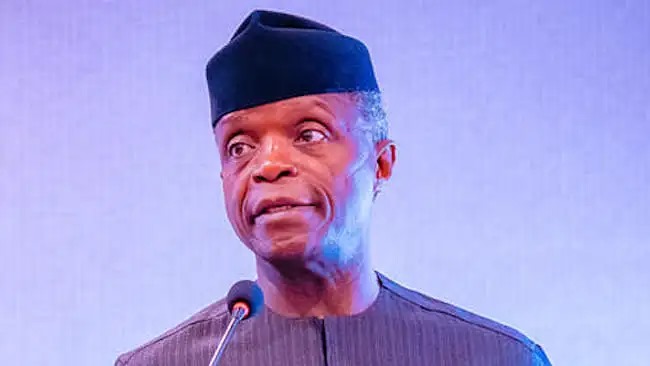By Peter Omopo
Former Vice President of Nigeria, Prof. Yemi Osinbajo, has raised alarm over the declining integrity of the legal profession in the country, warning that it is crumbling under the weight of corruption, ethical misconduct, and resistance to change.
Speaking on Friday at the 2025 Law Week Plenary Session of the Nigerian Bar Association (NBA), Yenagoa Branch, held at the Nigerian Content Tower in Bayelsa State, Osinbajo lamented the deepening perception of corruption within the judiciary and legal practice.
“The legal profession is crumbling under the weight of corruption, ethical violations, and poor standards,” Osinbajo said. “Stories of lawyers acting as conduits for bribing judicial officers are rife. The perception that both the bar and the bench are corrupt is deeply damaging.”
Addressing the theme “The Legal Profession: A Vision for a New Era,” Osinbajo underscored the urgent need for reforms amid global technological disruption, which he said has reshaped nearly every profession, including law.
He noted that while the world is witnessing rapid advancements in artificial intelligence and automation, the legal sector in Nigeria remains entrenched in outdated practices and traditions.
“Our profession needs a new vision, a new set of tools in a new era,” Osinbajo said. “Technology is fast replacing basic legal analysis and opinion writing. Much of the work lawyers used to do can now be done faster and more accurately by machines that never tire, never go on leave, and never ask for a raise.”
He warned that globalization and the democratization of legal knowledge were eroding the traditional monopoly lawyers once held. “We are no longer the custodians of basic legal knowledge or reasoning,” he said. “That has been taken over by machines and widely accessible platforms.”
To remain relevant, Osinbajo urged the legal community to embrace a forward-thinking curriculum that integrates legal technology and artificial intelligence. He also called for cross-disciplinary training in law, data science, design thinking, data privacy, and algorithm bias.
“There is an urgent need to prepare future lawyers not just for courtrooms, but for a world where tech and law must co-exist,” he said.
The former vice president’s remarks come amid growing public concerns about the integrity of Nigeria’s justice system and the need to restore public trust in legal institutions.

